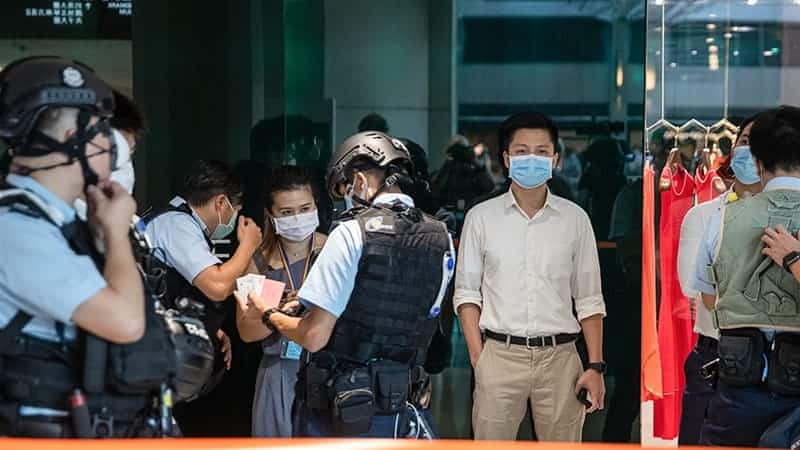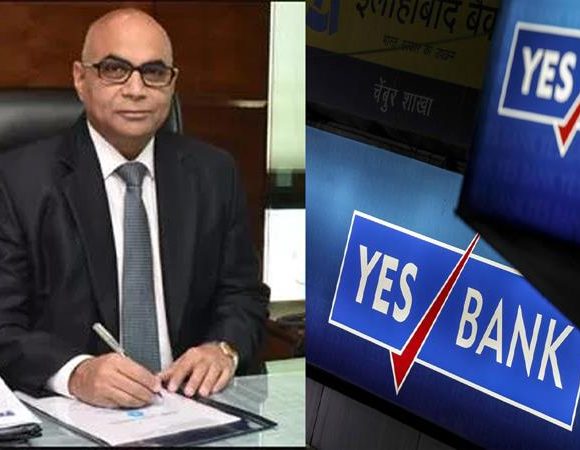

Beijing unveiled its national security law for Hong Kong on Tuesday, punishing crimes of secession, subversion, terrorism and collusion with foreign forces with up to life in prison, heralding a more authoritarian era for China’s freest city.
China’s parliament passed the tailor-made legislation earlier in the day, giving Beijing sweeping powers over its implementation and setting the stage for the most radical changes in decades to the global financial hub’s way of life.
Beijing had kept full details of the law shrouded in secrecy, giving Hong Kong’s 7.5 million people no time to digest the complex legislation before it entered into force at 11.00 pm (1500 GMT).
The timing was seen as a symbolic humiliation for Britain, coming just an hour before the 23rd anniversary of when Hong Kong’s last colonial governor, Chris Patten, a staunch critic of the law, tearfully handed back Hong Kong to Chinese rule.
Amid fears the law will crush the city’s freedoms, prominent activist Joshua Wong’s Demosisto and other pro-democracy groups said they would dissolve.
“It marks the end of Hong Kong that the world knew before,” Wong said on Twitter.
The legislation pushes Beijing further along a collision course with the United States, Britain and other Western governments, which have said it erodes the high degree of autonomy the city was granted at its July 1, 1997, handover.
The United States condemned the legislation as a violation of Beijing’s international commitments and vowed to go on acting “against those who smothered Hong Kong’s freedom and autonomy.”
Washington, already in dispute with China over trade, the South China Sea and the coronavirus, began eliminating Hong Kong’s special status under U.S. law on Monday, halting defence exports and restricting technology access.
China said it would retaliate.
Hong Kong leader Carrie Lam, in a video message to the United Nations Human Rights Council in Geneva, urged the international community to “respect our country’s right to safeguard national security”.
She said the law would not undermine the city’s autonomy or its independent judiciary.
Authorities in Beijing and Hong Kong have repeatedly said the legislation is aimed at a few “troublemakers” and will not affect rights and freedoms, nor investor interests.
As the law was passed in Beijing, the Chinese People’s Liberation Army garrison in Hong Kong held a drill which included exercises to stop suspicious vessels and arrest fugitives, according to the Weibo social media account of state-run CCTV’s military channel.
‘OVERPOWERING’
The security legislation will supersede existing Hong Kong laws where there is a conflict.
Judges for security cases will be appointed by the city’s chief executive. Senior judges normally allocate rosters up through Hong Kong’s independent judicial system.
According to the law, a new national security agency in Hong Kong will not be under the jurisdiction of the local government. Authorities can carrry out surveillance of and wire-tap people suspected of endangering national security, it said.
Those asking foreign countries to sanction, blockade or take other hostile action against Hong Kong or China could be guilty of colluding foreign forces.
Authorities shall take necessary measures “to strengthen the management and servicing of foreign countries’ and international organisations’ branches in Hong Kong, as well as foreign media and NGOs in the city, the law says.
The legislation may get an early test with activists and pro-democracy politicians saying they would defy a police ban, amid coronavirus restrictions, on a rally on the anniversary of the July 1 handover.
At last year’s demonstration, which came amid a series of pro-democracy protests, a crowd stormed and vandalised the city’s legislature.
“We will never accept the passing of the law, even though it is so overpowering,” said Democratic Party chairman Wu Chi-wai.
A majority in Hong Kong opposes the legislation, a poll conducted for Reuters this month showed, but support for the protests has fallen to only a slim majority.
Police dispersed a handful of activists protesting against the law at a shopping mall.
Dozens of supporters of Beijing popped champagne corks and waved Chinese flags in celebration in front of government headquarters.
“I’m very happy,” said one elderly man, surnamed Lee.
“This will leave anti-China spies and people who brought chaos to Hong Kong with nowhere to go.”
Britain, the European Union, Japan, Taiwan and others have criticised the legislation.
China has hit back at the outcry, denouncing “interference” in its internal affairs.


















